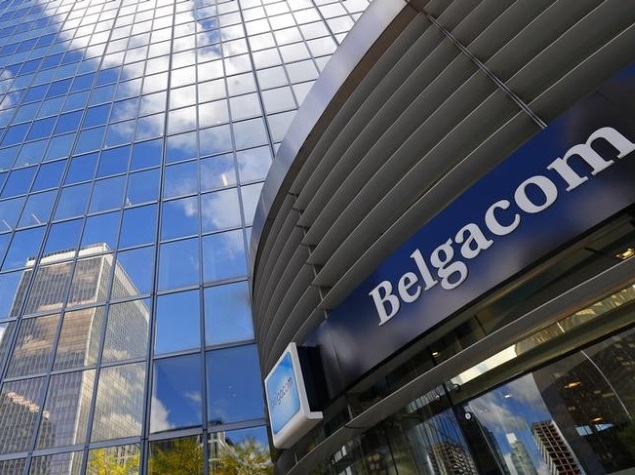- Home
- Internet
- Internet News
- Alleged UK Hacking of Belgian Telecom Firm Was Far Reaching: Reports
Alleged UK Hacking of Belgian Telecom Firm Was Far-Reaching: Reports

News of the intrusion into Belgacom's networks first broke late last year when Belgium asked Britain, its NATO and European Union partner, to respond to allegations that its intelligence service was responsible.
Belgian newspaper De Standaard, Dutch paper NRC Handelsblad and The Intercept, a website that regularly reports on documents leaked by former U.S. security contractor Edward Snowden, published detailed accounts on Saturday of how the scheme is alleged to have worked.
"In its digital attack on Belgacom, the British secret service was able to intercept more communications than was previously realised," De Standaard said.
It said British surveillance agency GCHQ got into the network in 2011 by hacking three employees and was then able to "poke around undisturbed" in the network of Belgacom and subsidiary BICS for two-and-a-half years.
"The security service was thus able to intercept communications from Belgacom's individual clients, from NATO and the EU, as well as from clients of hundreds of international telecoms providers. It is an unprecedented violation of the privacy of anybody who used a mobile telephone," it said.
The Intercept, financed by eBay founder Pierre Omidyar, said its reporting was based on documents from Snowden, who is currently living in Russia, and interviews with sources familiar with the investigation at Belgacom.
It said the malicious software found on Belgacom's systems was one of the most advanced spy tools ever identified by security researchers, who called it "Regin".
Belgacom, Belgium's dominant telecoms provider, was seen as a top target by the British spy agency because it plays an important role in Europe and has partnerships with hundreds of telecommunications companies across the world, it said.
Citing a GCHQ document from 2011, the website said the British spy agency hacked into the computers of three Belgacom engineers, gaining access to the firm's networks for surveillance purposes. Later, GCHQ obtained data being sent between Belgacom and other operators, it said.
The hack was not detected until 2013, when Belgacom said it had improved security and removed an unknown virus from its systems and that there was no indication of any impact on customers. It did not respond to requests for comment on Saturday.
GCHQ has previously declined comment on the allegations.
© Thomson Reuters 2014
For the latest tech news and reviews, follow Gadgets 360 on X, Facebook, WhatsApp, Threads and Google News. For the latest videos on gadgets and tech, subscribe to our YouTube channel. If you want to know everything about top influencers, follow our in-house Who'sThat360 on Instagram and YouTube.
Related Stories
- Samsung Galaxy Unpacked 2025
- ChatGPT
- Redmi Note 14 Pro+
- iPhone 16
- Apple Vision Pro
- Oneplus 12
- OnePlus Nord CE 3 Lite 5G
- iPhone 13
- Xiaomi 14 Pro
- Oppo Find N3
- Tecno Spark Go (2023)
- Realme V30
- Best Phones Under 25000
- Samsung Galaxy S24 Series
- Cryptocurrency
- iQoo 12
- Samsung Galaxy S24 Ultra
- Giottus
- Samsung Galaxy Z Flip 5
- Apple 'Scary Fast'
- Housefull 5
- GoPro Hero 12 Black Review
- Invincible Season 2
- JioGlass
- HD Ready TV
- Laptop Under 50000
- Smartwatch Under 10000
- Latest Mobile Phones
- Compare Phones
- Vivo Y200+
- Lava Yuva 2 5G
- OnePlus Ace 5
- OnePlus Ace 5 Pro
- Oppo A5 Pro 5G
- Vivo Y29 5G
- Honor Magic 7 RSR Porsche Design
- Moto G15 Power
- Asus Zenbook S 14
- MacBook Pro 16-inch (M4 Max, 2024)
- Honor Pad V9
- Tecno Megapad 11
- boAt Enigma Gem
- boAt Enigma Daze
- Sony 65 Inches Ultra HD (4K) LED Smart TV (KD-65X74L)
- TCL 55 Inches Ultra HD (4K) LED Smart TV (55C61B)
- Sony PlayStation 5 Pro
- Sony PlayStation 5 Slim Digital Edition
- Blue Star 1.5 Ton 3 Star Inverter Split AC (IC318DNUHC)
- Blue Star 1.5 Ton 3 Star Inverter Split AC (IA318VKU)

















